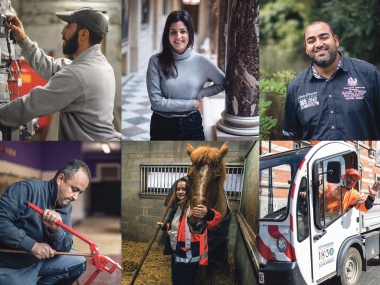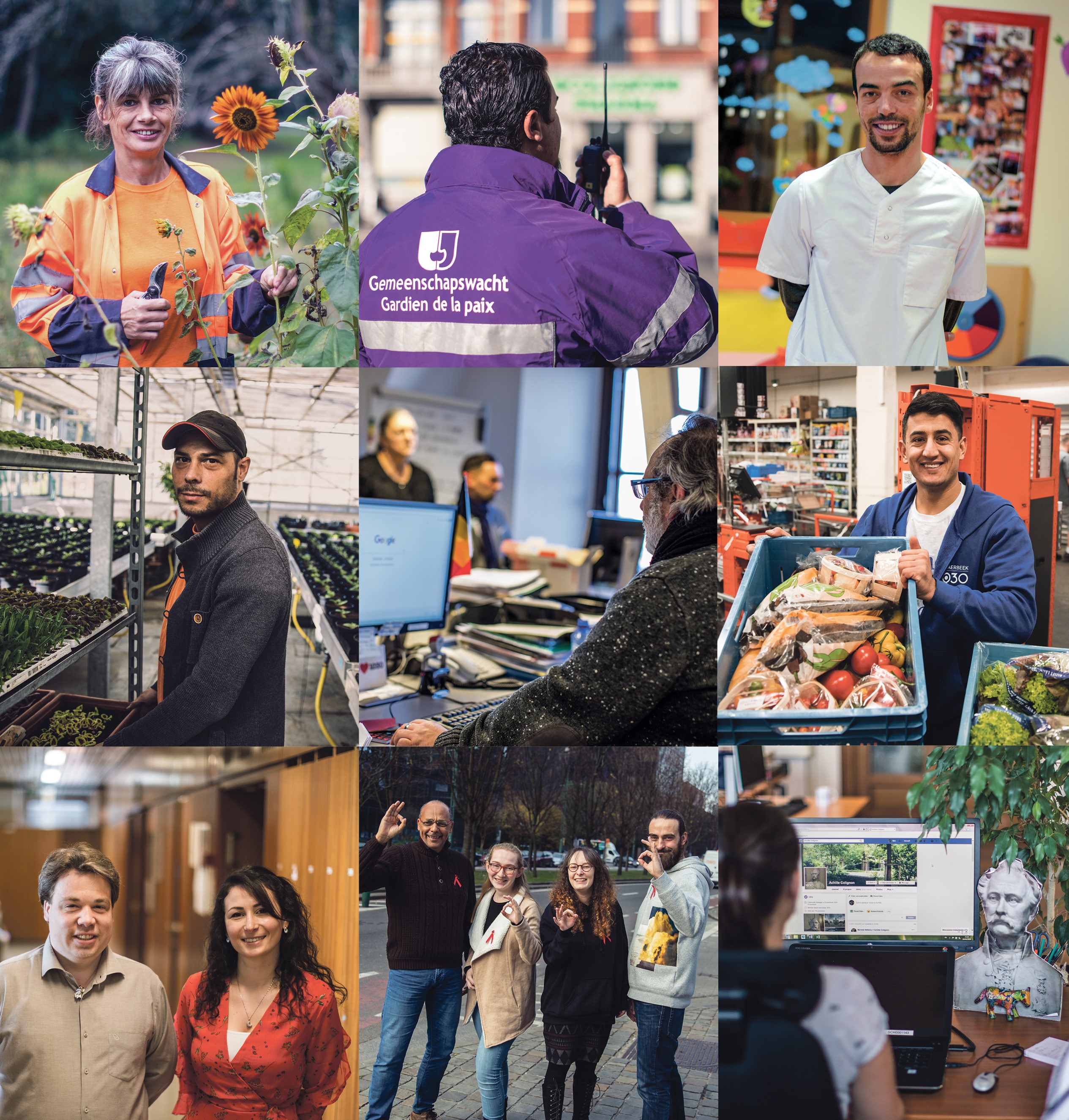On the COVID-19 crisis and public procurement
Edited on
28 April 2020We are living in a time of crisis, and it is not a secret. The COVID-19 pandemic has taken us by surprise and has abruptly obliged us to change our habits. As Europeans, we are used to travel with few restrictions, to go out for coffee and dinner, to have hours-long meeting around a table in our offices. As of now, travels must be restricted to the essential ones, cafés and restaurants are closed and meetings happen mostly online, where the faces of our colleagues appear on small squares on our computer screens, with kids and pets running in the background.

Cities are doing their best to keep the machine running despite the difficulties created by the crisis. To do so, solidarity actions are taking place throughout Europe, with many positive examples to look up to. The municipality of Schaerbeek is for example providing access to food(link is external) for people at a disadvantage, information and remote access to social services(link is external), support to pupils (link is external)who are now home schooled and support to local business and associations(link is external) with dedicated funds.
What does all of this has to do with procurement one might ask? As public institutions, municipalities have to keep on buying what is needed for their workers and for their citizens. 
Surely, some needs are new. Many municipalities bought masks and sanitizing gel for the first time. Some needs are not new, but became more urgent. For example, to facilitate remote working, IT departments had to provide a larger number of laptops.
For these type of needs, the European Commission published a short but clear “Guidance from the European Commission on using the public procurement framework in the emergency situation related to the COVID-19 crisis(link is external)”. Reducing deadlines and negotiated procedures without publication are two of the possibilities for public authorities to keep on buying according to the law while facing a public emergency. A third element also needs to retain our attention: market engagement. Public authorities are allowed to have contacts with the market before starting a tender, to be informed about what products are available and what the industries’ capacities of production are. In its guidance, the Commission explains:
“To satisfy their needs, public buyers may have to look for alternative and possibly innovative solutions, which might already be available on the market or could be capable of being deployed at (very) short notice. Interaction with the market may offer good opportunities to take into account also strategic public procurement aspects, where environmental, innovative and social requirements, including accessibility to any services procured, are integrated in the procurement process.”
Even though the COVID-19 crisis was not foreseeable as such, public authorities could take steps in “normal times” that might facilitate their tasks when they find themselves in an emergency and a swift reaction is necessary. Firstly, having access to an up-to-date database of local firms searchable by type of industry / production (NACE code for example). This will save public buyers hours of roaming the internet to find a match to the urgent need. Secondly, authorities should become more familiar with the possibility to formulate the tender questions (when relevant) in terms of their needs and not in terms of expected solutions. The market is often more innovative than we think. Producers are the experts in their own fields and may suggest solutions that are cost-effective, easier to produce or adaptable to the situation the public authority is facing.
And what about those needs that relate to our (currently suspended) daily life? Building schools, renovating streets’ pavement, repairing public lighting… In Schaerbeek, like other municipalities, the renovations are in most cases at a stop because this type of work cannot be rearranged to take into account social distancing measures. Also, the production line and supply chain are disrupted in many cases.
Schaerbeek’s objective is to reinforce the sustainability of its public procurement, in its economic, environmental and social aspects and this objective has to be uphold even in times of crisis. We are aware that in the upcoming weeks, once life will go gradually back to some kind of normalcy, public procurement will be a key element in the economic reconstruction of our cities. For on-going tenders that had to come to a halt, municipalities will need to find the best solution so that firms will be able to resume working in a safely manner and to have a reliable income. For future procedures, SMEs that suffered greatly from the crisis will need to be empowered to be able to respond to tenders, so that their possibilities for production and trade will be greater than if limited to the private sector.
Strengthening communication and trust between the public administration and the private sector, including in matters related to public procurement, will be essential to move beyond the crisis: it will allow clarifying the needs, discovering solutions, adapting to a novel economic situation, understanding each other’s constraints and, most importantly, reinforcing social links, hopefully making all of us a bit more prepared for the next public emergency.
Article written by: Valentina Morselli
 Submitted by Alison Taylor on
Submitted by Alison Taylor on
